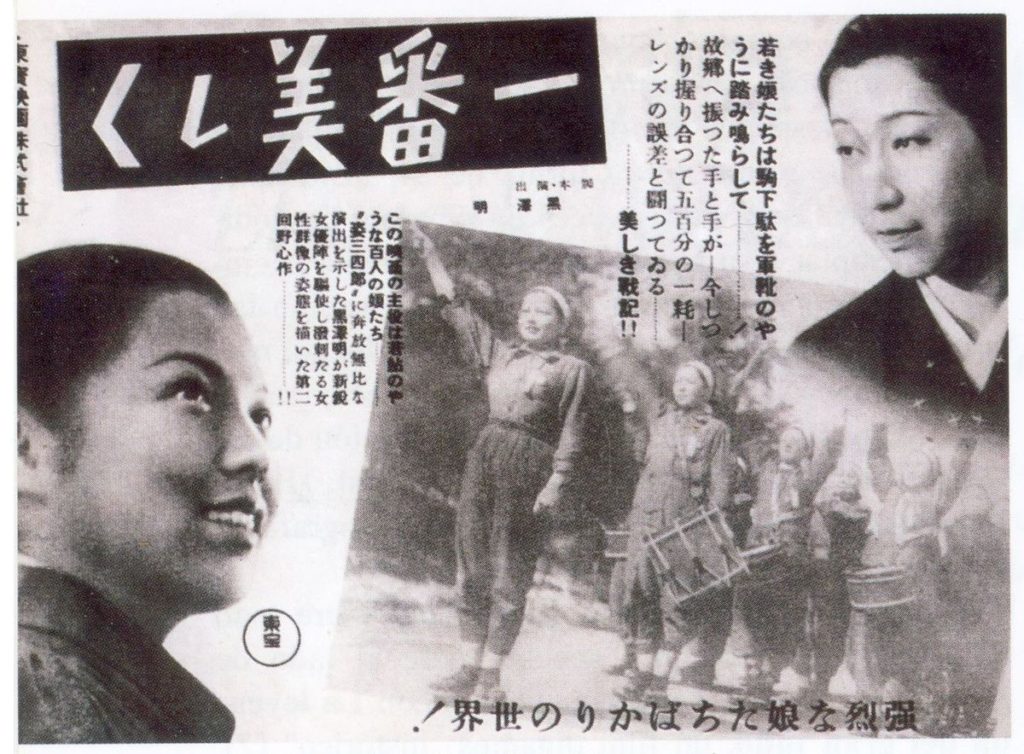To celebrate the upcoming release of my book, Akira Kurosawa: A Viewer’s Guide, due out Dec. 15 from Rowman & Littlefield — preorder here! — I’ll be doing capsule reviews all month covering every single Kurosawa film and posting (very) brief excerpts. These will be short impressions and recommendations, nothing more. For a full, detailed analysis of each, grab the book!
The Most Beautiful (1944)
The 2nd film by Akira Kurosawa was an unlikely one, given his anti-authoritarian nature: a WWII propaganda film focused on a group of women working in a wartime factory.
Here, the young women face illness, crushing deadlines, and more, but through their indomitable spirit (and with the help of a caring leader) they come to find joy in giving themselves to a larger cause. Most Kurosawa films are about individuals struggling against forces larger than themselves. Here, the movie is about individuals giving themselves TO forces larger than themselves. Very unusual for him!
From the book:
Of note here is Kurosawa’s rare focus on the lives of women, something infrequently seen in his work. With this picture, he manages to make the most out of a series of vignettes focused on personal drama and how overcoming that personal drama was vital to the war effort. In the process, he gave Japanese cinema one of its first forays into social realism.
For casual fans, I’ll be honest: you don’t need to see this. It’s well-crafted, capably-made, and quite instructive about Japanese messaging in the final year of World War II — unlike Alfred Hitchcock‘s “Juno and the Paycock,” it’s actually worth watching — but unless you’re a huge Kurosawa fan who must see it all, you don’t need to see this one.
For Kurosawa fans, though, I’ll quote from the upcoming book:
Fittingly, given that what defined Kurosawa even in his own mind was his body of work, the final message of The Most Beautiful seems to be that you are what you do. Your worth comes in what you accomplish. What you make. What you give to others. It says that even individuals in a large group still retain their importance as individuals, an idea key to Kurosawa’s entire filmography.
You can get the movie in this excellent boxed set.







